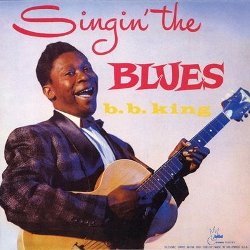Critical reception
Billboard (June 10, 1957): "One of the better r.&b. artists, a goodly portion of B.B. King's hits have been put together in this set. B.B.'s country blues vocal style, together with his frenetic guitar method, is enough to sell the r.&b. market. Price here is the attraction, too." [1]
In an overview for AllMusic, critic Bill Dahl called it "absolutely seminal material; his classic hits." [4] The Penguin Guide to Blues Recordings says that it is “self-evidently a near-faultless album.” [5]
This page is based on this
Wikipedia article Text is available under the
CC BY-SA 4.0 license; additional terms may apply.
Images, videos and audio are available under their respective licenses.
